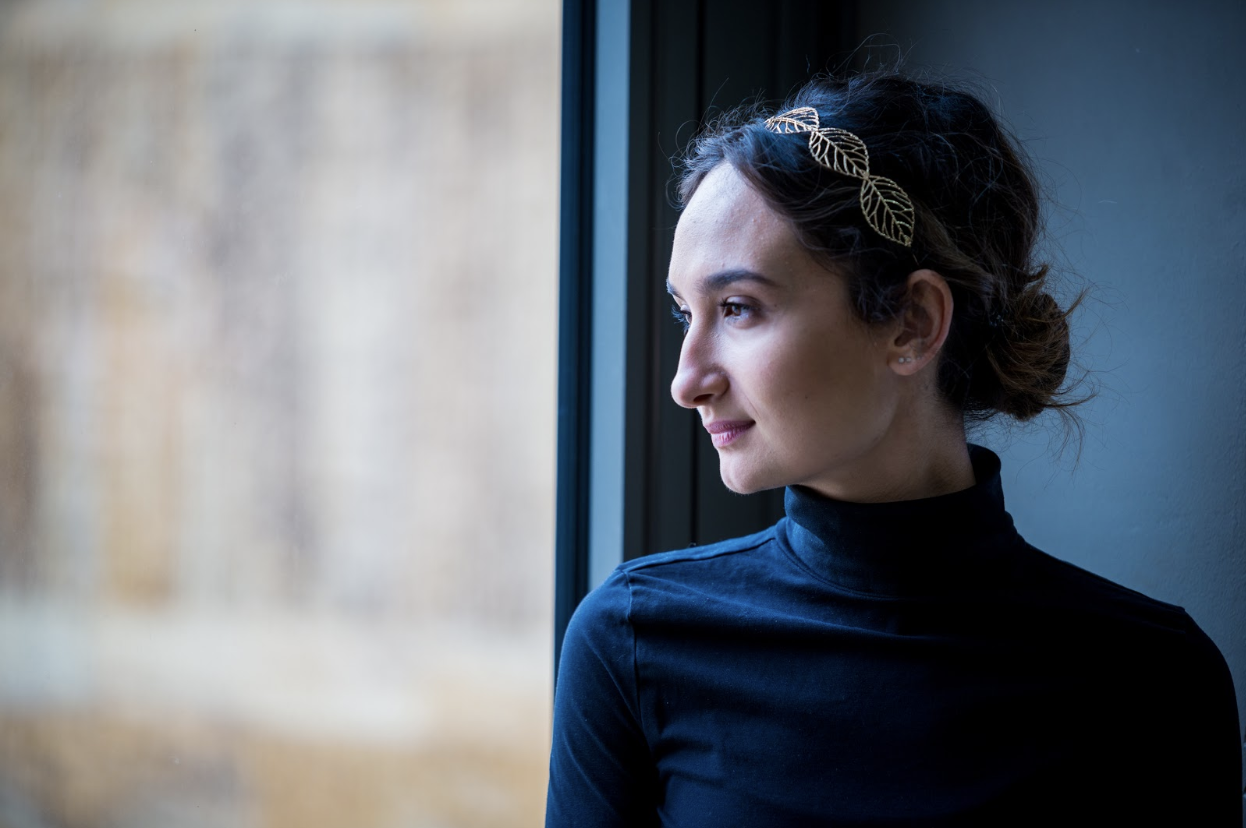Jelena Stojkovic : Empowering children to live their dreams should be our top priority
Today we sit down to talk with another inspiring Djokovic Scholar – meet Jelena Stojkovic!
After I receive my Ph.D. in preschool pedagogy, I hope to inspire and mobilize key players in the field of early childhood to empower children to live their dreams and equip them with knowledge and skills they need to succeed.
Jelena Stojkovic is a first-year doctoral student in Preschool Pedagogy at the Department of Pedagogy and Andragogy of the Faculty of Philosophy, University of Belgrade. Since September 2017, she has been a deputy secretary at the Department of Pedagogy and Andragogy, where she earned her bachelor and master degree, researching the topic “How Digital Communication Impacts Relationships among Young People and Risks They Face Online”.
Thanks to the Novak Djokovic Foundation scholarship, Jelena now attends a Ph.D. programme at the Faculty of Philosophy, Department of Pedagogy and Andragogy. If you want to find out more about Djokovic Scholars, read our published interview with Nevena Mitranic.
-
When you think about your childhood, how would you describe it?
I grew up in a small village called Troponje, near a town called Svilajnac in central Serbia, in one of those close-knit communities where people know each other well and function as one big family. I finished primary and secondary school in Svilajnac. This town and my home village remind me of the excitement of the first school days, falling in love for the first time and the joy of playing outdoor games with dear friends. We spent many happy hours together, exploring our micro world shaped by beautiful nature and rural life. I also enjoyed reading and reciting poems and taking dance lessons.
-
What are the things you remember the most regarding your early learning?
When I was a child, everyone addressed me as “doctor Jelena”. I liked that very much because I dreamed of helping people. However, finding my way was not easy at all. It took me a while to define my interests and aspirations and choose the career to match my passion for early childhood education and care. I had no idea that in the end I would be actually studying to earn a doctoral degree in pedagogy, instead of in medicine. In pedagogy, I ultimately found my inner self and got everything I ever wanted. My childhood dream still came true, even though I don’t work in a hospital and wear the white coat as I initially imagined.
I’m glad that I have a chance to empower children and to help them get the most of their learning. It’s a pleasure to work together with educators to bring the best practices of teaching to preschools.

Jelena Stojkovic, Djokovic Scholar, class 2018 – 2022
-
How did you set your mind on getting a university degree in pedagogy?
Based on the knowledge I gained in high school by studying philosophy, sociology, and psychology, I became interested in examining how young children learn and discover the world around them. They encouraged me to put the theories of early childhood education and development to practice and further research these areas. Eventually, I knew that my goal and mission were to support children to reach their full potential.
I decided to study pedagogy because I realized that by working with kids I would be doing something really important for the whole society. But at the same time, I would be able to preserve the little girl within who is a significant part of my identity.
More importantly, pedagogue’s job goes beyond the academic field. It’s about being a practitioner and making a difference in the education and upbringing of young children. My focus has always been on children – the way they perceive the world and their place in it, face challenges, how they communicate with peers and adults, express their emotions and show empathy for others.
-
Your research and doctoral dissertation are focused on digital technologies. Why did you choose this topic?
Digital technologies are increasingly acknowledged as an important aspect of contemporary early childhood education. Children grow up in media-rich homes. They like using digital technologies for learning, playing, communicating and creating. Therefore, I’m particularly interested in understanding the role that digital technologies play in young children’s lives.
Instead of seeing digital technologies only as challenging in terms of their control and regulation, we should guide and empower children to participate effectively in this digital world and stay safe online.
-
What are the ways to improve preschool education in Serbia?
Primarily by increased support for preschool education and investment in high-quality preschool programs. I think the dialogue between early childhood educators, parents and policymakers is crucial in order to make a breakthrough in the development of preschool education in our country.
Every adult has a stake in the education of children. That’s why teachers, childcare experts, and professionals must reach out to parents, local communities, leaders, and work together for the well-being of the youngest and their better future.
In 2018, the Novak Djokovic Foundation started cooperation with the Faculty of Philosophy, University of Belgrade with the goal to create a new generation of leaders in the field of ECE and ECD – academic change agents who conduct cutting-edge research, translate and communicate research into policy and practice related to quality preschool education in Serbia.

